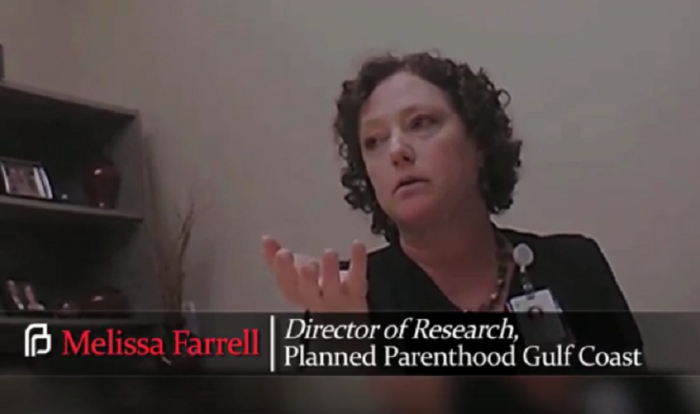Should Christians Lie to End Abortion?

Is it ethical for Christians to deceive with undercover videos to further their goals of exposing the immoral behavior of Planned Parenthood and ending abortion?
This debate was recently revived in light of the new undercover videos by the Center for Medical Progress showing the sell of aborted baby parts and possible killing of babies born alive.
Christopher O. Tollefsen, professor of philosophy at the University of South Carolina, senior fellow of the Witherspoon Institute and author of Lying and Christian Ethics (Cambridge, 2014). penned a Witherspoon Institute essay on unjust killing where he questioned the tactics of the CMP from an Augustinian perspective that lying opposes God, who himself is truth.
"Currently, pro-lifers are again decrying, and rightly, the barbarism of Planned Parenthood, with their officials' callous indifference to the real, and not merely monetary, value of the human beings destroyed in abortion," declared Tollefsen.
"But knowledge of that indifference, and the actions rooted in it, seems to have come about once again by means of techniques that involved lies," he added.
Tollefsen contends that pro-lifers should "occupy" a "higher ground" of "truth."
Commentators at The Federalist and The Stream, on the other hand, called the videos a "defense" of the unborn and argued that the actions of undercover investigators speak "the truth."
Writing in The Federalist, Hans Fiene offered not just an alternative perspective to Tollefsen but a vigorous defense of the Center for Medical Progress.
"The purpose [of the lie] was and remains to stop them from killing the unborn," declared Fiene. He accuses Tollefsen and those seeking "philosophical purity" that "God never actually forbids all utterances of untruth, instead couching the language of the eight commandment more specifically as "bearing false witness against our neighbor, making false statements intended to harm him in his body or reputation."
And many experts agree that the very purpose of investigative journalism is by nature a pursuit of the truth.
"It exposes wrongdoing, sparks reform, changes minds, and changes lives," declares the Fund for Investigative Journalism. In 2011, The Frontline Club of London, a news gathering organization published a survey on the meaning and purpose of investigative journalism. One response reads: "Its function is to reveal the truth, to root out facts many people often want to keep hidden, to re-establish fairness, to shine light in dark places. Good investigative journalism is journalism's strongest suit."
John Zmirak's essay in the Stream, who defends CMPs actions, emphasizes the sacred end of protecting the unborn, while offering analysis of the difference between "entrapment and legitimate undercover work."
Zmirak provides a substantial list from Scripture, history, and contemporary times to argue that deceit can have moral purpose and promote the common good. An often cited example comes from Exodus 1:16, where Pharaoh gives a command to kill every newborn boy, but the midwives lie to Pharaoh and God showed kindness to them (Exodus 1:17). Zmirack says that "any moral philosophy that all these activities are intrinsically evil has got some explaining to do.
"By insisting on premises that yield such repugnant conclusions, and claiming that the only alternative is a crass and unprincipled pragmatism," declares Zmirack, "verbal pacifists are cutting off their nose to spite their face."
In a 2011 essay defending the undercover work of the pro-life group Live Action, Catholic philosopher and author Peter Kreeft defended some aspects of lying.
"The closest analogy I can think of to Live Action's expose of Planned Parenthood is spying," declared Kreeft. "If Live Action is wrong, then so is all spying, including spying out the Nazis' atomic bomb projects and saving the world from a nuclear holocaust.
"If lying is always wrong, then it is wrong to lie to a nuclear terrorist (the "ticking time bomb" scenario) to elicit from him where he hid the nuclear bomb that in one hour will kill millions if it is not found and defused," added Kreeft.
He further encouraged Christians to heed the command of Christ and "become like little children," remembering "our more simple and innocent moral wisdom."
The Apostle Paul of course tells the Church at Ephesus to put "away falsehood" and "speak the truth to our neighbors" (Ephesians 4:25). While there may be debates about how the truth is discerned and disseminated within the Christian community, there is broad agreement on the ends among those debating the means, that the unborn must be protected.




























